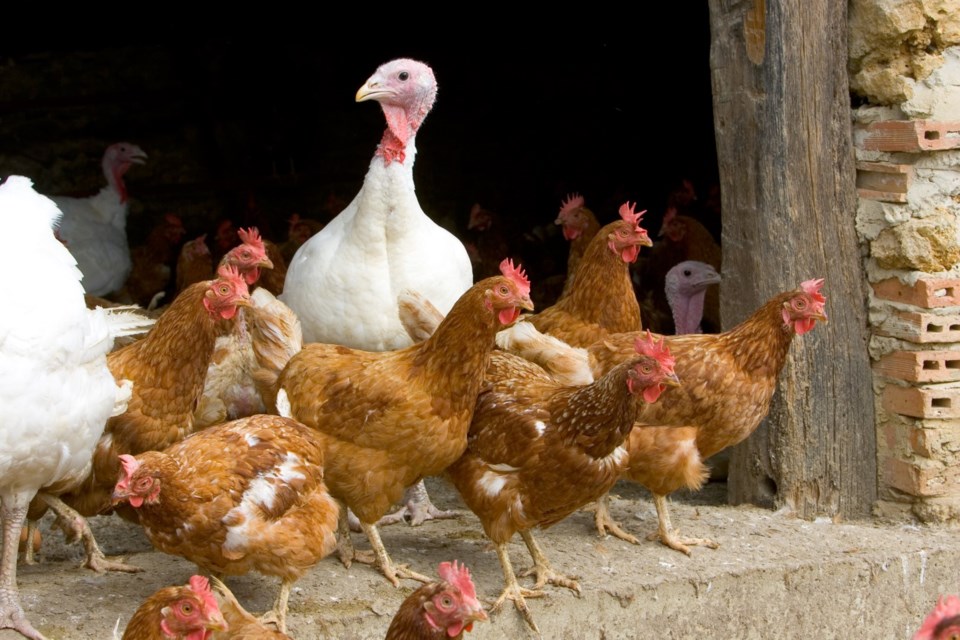More than 50 farms across B.C. have been hit with outbreaks of avian influenza over the past two months, federal data shows
That means B.C. poultry account for more than half of the nearly 11 million birds affected by the latest round of outbreaks in Canada, according to the Canadian Food Inspection Agency CFIA.
Amanda Brittain, chief information officer for the BC Poultry Association, said the infected farms make up about 10 per cent of all commercial farms in the province.
“This version of the virus is much much different from anything we’ve seen in the past,” said Brittain.
“It’s affecting everything: chickens, turkeys, ducks, and of course, wild birds.”
Since Oct. 20, most of the 52 farms infected with the highly pathogenic H5N1 bird flu virus are in the Fraser Valley. Of those, 47 are commercial farms and five have small flocks, the B.C. Ministry of Agriculture and Food said in a statement Thursday.
Scientists have isolated variants of the H5N1 influenza virus in more than 100 wild bird species worldwide, from waterfowl like geese, swans, ducks and gulls to shoreline species like sandpipers, plovers and storks. Not all strains are deadly. In the same way that many humans pull through an annual bout of the flu, many strains of the avian varieties rarely cause more than the sniffles, lethargy or fever in birds.
High-pathogenic strains are different. When HPAIs enter a poultry farm, they often find the immunologically naive bird populations that haven't had time to evolve any resistance, according to Ronald Ydenberg, a professor of behavioural ecology and director of Simon Fraser University’s Centre for Wildlife Ecology.

Brittain said the latest outbreak of bird flu has yet to push the poultry industry to consider changing the basics in how it raises poultry.
“We haven’t talked about how it spreads from bird to bird,” she said. “There’s been no talk of that yet.”
“We’re still in the middle of an outbreak.”
The province has taken a number of steps to reduce chances of spreading the virus from farm to farm. In October, B.C.’s chief veterinarian ordered restrictions on poultry events such as shows, markets and auctions. Commercial farms are also now required to keep their flocks indoors.
But Brittain said there is little to no lateral transfer of the virus occurring between farms — on truck tires or the boots of visitors, for example. The virus does appear to be entering commercial poultry flocks through contaminated ground water infected by wild bird feces, she said.
B.C. is on the path of two important migratory bird flyways, and B.C.’s relatively warm climate means cases have persisted compared to other parts of Canada, said Brittain
“There are birds that overwinter in B.C. — not so attractive in Winnipeg, if you know what I mean,” she said.
Despite B.C.’s disproportionate share of bird flu outbreaks, cases have declined in recent weeks as the weather cools.
Other good news, Brittain says there’s no concern with the supply of poultry ahead of holidays.
“You should have no problem getting a turkey for Christmas,” she said.
The CFIA says there is no evidence to suggest eating cooked poultry or eggs could transmit bird flu to humans.


